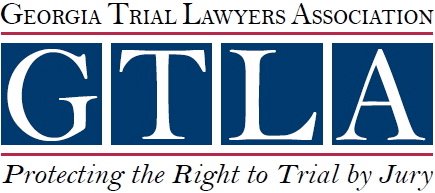Welcome to the Princenthal, May & Wilson Law Blog. As experienced personal injury attorneys in Georgia, we understand that facing a legal claim can be both daunting and confusing. Many of our clients come to us with pressing concerns and a need for clear guidance. Today, we’re addressing a common yet critical question: “What does it mean when a claim is filed against you?”
When someone files a claim against you, it typically means they believe you are legally responsible for harm or damages they have suffered and are seeking compensation. This can occur in various scenarios, ranging from automobile accidents to incidents of premises liability. Understanding the implications of a claim being filed against you is crucial for effectively navigating the legal challenges that lie ahead.




What Does it Mean When a Claim is Filed Against You?
In Georgia personal injury law, a “claim” generally refers to a formal assertion by an individual (the claimant) that another party (the defendant) is legally responsible for causing harm or injury. This assertion is usually based on allegations that the defendant’s negligent, reckless, or intentional actions resulted in the claimant suffering damages. These damages can include medical expenses, loss of wages, pain and suffering, and more.
A claim sets the stage for a potential lawsuit, serving as a precursor to litigation. It is essentially a demand for compensation due to the injuries and losses suffered by the claimant.
Definition of Pre-Litigation Claim
A “pre-litigation claim” refers to the steps and negotiations that take place before a formal lawsuit is filed. In the pre-litigation phase, the claimant, often through their attorney, will send a demand letter to the alleged at-fault party outlining the basis of the claim, the injuries sustained, and the compensation sought.
This phase is critical because it opens the door for settlement negotiations, potentially allowing both parties to resolve the matter without proceeding to court. Pre-litigation is beneficial because it can significantly reduce the legal expenses and time associated with a court trial.
What Happens When a Claim Is Filed Against You?
When a claim is filed against you, the process begins with notification. You will receive a demand letter or a notice from the claimant’s attorney, informing you of the claim. Next, it is essential to review the claim carefully and understand the accusations made against you. At this stage, consulting with a personal injury attorney is vital; they will offer legal advice tailored to your situation.
If you have insurance, such as auto or homeowners insurance, it’s crucial to inform your insurer immediately. Most insurance policies mandate reporting any incidents that could lead to a claim. Your insurer might also provide legal defense if the claim falls within your policy coverage.
Following the notification, an investigation is usually conducted by both your attorney and your insurance company. This is to assess the validity of the claim and determine the extent of any claimed damages. The investigation may include collecting medical records, witness statements, and other relevant documents.
Negotiations often occur in the pre-litigation phase. During this time, your attorney and the claimant’s attorney may discuss a potential settlement. If a settlement is within reach, it might be negotiated and finalized without the need to go to court.
However, if a settlement cannot be reached, the claimant might opt to file a lawsuit. This escalates the matter to the litigation phase, where it will be resolved in court by a judge or jury.
Understanding Lawsuits in Georgia Personal Injury Law
If you find yourself involved in a personal injury case as a defendant, it is crucial to understand what a lawsuit entails under Georgia law. This detailed guide will explain the concept of a lawsuit, the process of being sued, and what steps you should take to navigate this challenging scenario.
What is a Lawsuit?
In Georgia personal injury law, a lawsuit is a formal legal action initiated by a plaintiff (the injured party) against a defendant (the party allegedly responsible for the injury). The purpose of a lawsuit is to seek compensation for damages that the plaintiff claims to have suffered due to the defendant’s negligence or wrongful action. This legal process is carried out in civil court and can be resolved either through a trial or a settlement agreement before reaching trial.
The Process of Having a Lawsuit Brought Against You
When you’re sued, the process starts as soon as you receive two important documents: the summons and the complaint. The summons informs you that you are being sued, and the complaint lays out the specifics of the allegations against you, the nature of the claim, and the damages sought.
Once served, you typically have a limited time, often 30 days in states like Georgia, to formally respond to the complaint. In your response, you must address each allegation by admitting, denying, or claiming insufficient knowledge to respond. Ignoring these documents can lead to a default judgment against you, allowing the plaintiff to win the case by default and possibly claim the damages they are asking for without your side of the story being heard.
Following these initial stages, both parties engage in the discovery phase. This pre-trial process allows each party to gather evidence about the other’s claims and defenses. Common methods used during discovery include depositions, requests for documents, and interrogatories, which are written questions that require answers under oath.
As the case progresses, either party may file motions. These are formal requests for the court to make specific rulings or decisions, such as a motion to dismiss the case for legal reasons or a motion for summary judgment if the facts are undisputed and only a legal ruling is necessary.
Negotiations to settle the lawsuit out of court can happen at any point. Settlement negotiations may involve mediation or direct talks between attorneys, aiming to resolve the dispute without the cost, time, and uncertainty of a trial.
If the parties cannot settle, the lawsuit proceeds to trial, which in Georgia could be either before a judge (bench trial) or a jury. Here, both parties present their evidence and arguments, and then a judge or jury determines whether the defendant is liable and decides on the appropriate damages.
After the trial, a judgment is issued. If the judgment favors the plaintiff, the defendant is ordered to pay the determined damages. Displeased with the outcome, the defendant has the option to appeal the decision to a higher court, seeking a reversal or modification of the trial court’s decision.
Representative Cases
What Does it Mean When a Claim is Filed Against You vs a Lawsuit?
A claim is an informal request for payment made directly to the at-fault party or their insurance company. A lawsuit is a formal legal case brought in court. Claims are generally handled through direct communication and negotiation, often involving only the parties and the insurance company. Lawsuits involve a structured court process, which includes filings, discovery, and possibly a trial.
Claims do not involve the court and are aimed at reaching a settlement outside of court. Lawsuits are judicial proceedings that require court involvement and follow legal procedures and timelines.
Claims can be settled quickly if both parties agree on compensation, avoiding the need for a trial. Lawsuits can be lengthier and often culminate in a trial, though they can also be settled at any point before a verdict is reached.
Hiring a Personal Injury Attorney How Long Will a Personal Injury Case Take?Related Videos
Justice for Georgians
Understanding what it means when a claim is filed against you is crucial in effectively navigating the potential challenges and decisions you may face. Whether you find yourself unexpectedly having to defend against a claim or considering filing one due to injuries or losses you have incurred, the process can be complex and the stakes high.
At Princenthal, May & Wilson, we focus on managing the intricacies of personal injury claims and litigation, ensuring that our clients are fully informed and vigorously represented throughout the process. If you feel you have a claim, our experienced team provides you with the support necessary to achieve the best possible outcome for your situation.
If you are contemplating bringing a claim, do not hesitate to reach out to us. Contact our office today to schedule a consultation. Let us help you understand your rights and options and guide you through every step of the process. Protecting your interests is our top priority.





